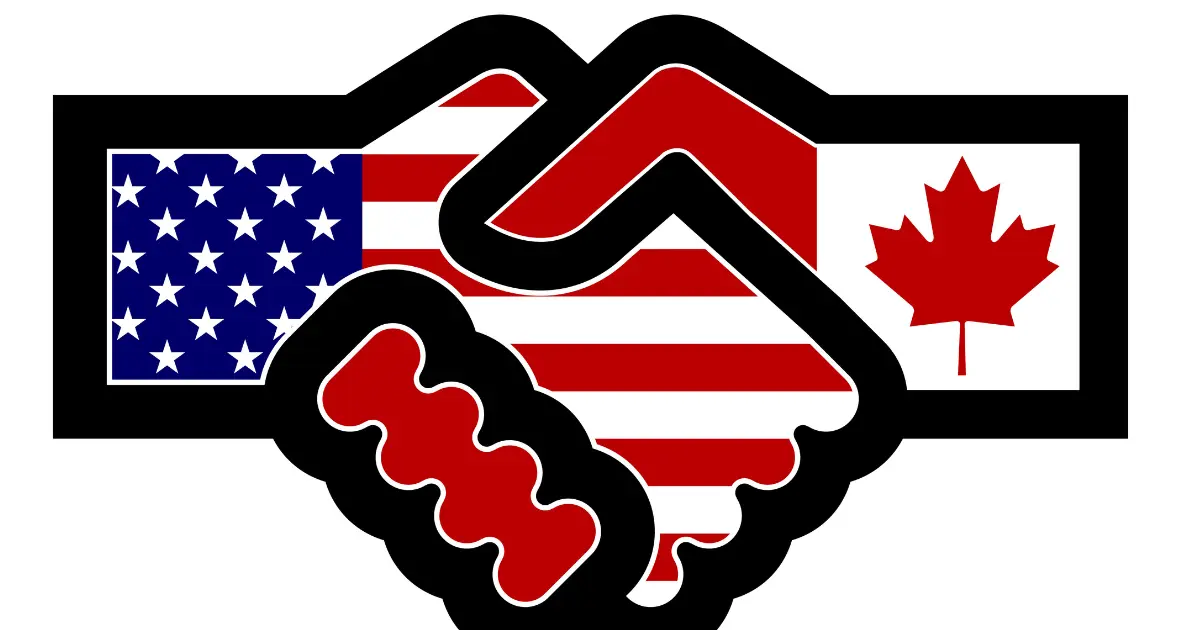Is it cheaper to live in Canada or US? Canada vs USA – All You Need To know

For generations, the age-old question of whether to settle in Canada or the United States has intrigued many. Each country boasts its unique qualities and advantages, and deciding where to live is a complex one.
In this comprehensive blog post, I’ll dive into various aspects of life in Canada and the USA, highlighting key differences and similarities to help you make a well-informed choice.
Is it cheaper to live in Canada or US?
Determining which country is definitively “cheaper” is complex and dependent on individual circumstances. However, living in the USA tends to be more expensive compared to Canada, especially in major cities. Factors such as healthcare, housing, and expenses play a role in the overall cost of living in each nation.
Let’s further explore key aspects that influence affordability in both countries;
1. Education
The education systems in both the USA and Canada share similarities, with state education being popular in both. However, there are differences in their university systems. In Canada, tuition fees are notably lower than in the USA, offering a more affordable option for students seeking higher education.
Additionally, The USA boasts numerous prestigious private universities, including Ivy League institutions, but attending these institutions can come with a costly price tag. Scholarships and financial aid opportunities are available in the USA, which can help reduce costs. The choice between the two countries ultimately depends on your educational goals and financial situation.
i. Education Costs: Canada vs. US
| Category | Canada (Average) | US (Average) | Notes |
|---|---|---|---|
| Public University Tuition (Undergraduate) | C$7,900 | US$26,290 (Out-of-State) | Varies significantly by institution and province/state |
| Private University Tuition (Undergraduate) | C$23,400 | US$35,830 | Varies significantly by institution |
| Public College Tuition (2-Year) | C$5,000 | US$18,230 (In-State) | Varies significantly by institution and state |
| Private College Tuition (2-Year) | C$8,900 | US$35,000 | Varies significantly by institution |
| Living Expenses (Annual) | C$15,000 | US$16,000 | Varies significantly by location and lifestyle |
| Financial Aid Availability | More readily available for international students in Canada | Primarily loan-based aid in the US | |
| Scholarship Opportunities | More common in Canada for international students | Limited scholarships for international students in the US |
2. Healthcare Expenses
The healthcare system is another critical element affecting the cost of living. Canada has a public healthcare system, funded by taxes, providing essential medical services. In the US, healthcare is often privatized, with individuals relying on insurance coverage.
| Category | Canada | US | Notes |
|---|---|---|---|
| Healthcare System | Universal, funded by taxes | Primarily private, insurance-based | |
| Average Annual Healthcare Costs (Individual) | C$5,000 | US$11,000 | Varies based on insurance and utilization |
3. Housing Costs
Furthermore, Housing is a significant contributor to the cost of living. In Canada, cities like Toronto and Vancouver are known for their high real estate prices, impacting rental and ownership costs. In contrast, the United States has diverse housing markets, with some areas having relatively lower costs. However, cities like San Francisco and New York can be expensive.
| Category | Canada (Average) | US (Average) | Notes |
|---|---|---|---|
| Median House Price | C$468,100 | US$391,200 | Varies significantly by location |
| Median Apartment Rent (1 Bedroom) | C$1,700 | US$1,320 | Varies significantly by location |
4. Everyday Expenses
Daily necessities, such as groceries, transportation, and utilities, contribute significantly to the overall cost of living. We’ll compare the average prices of essential goods and services in both countries, considering regional variations and lifestyle differences that may impact everyday expenses.
| Category | Canada | US | Notes |
|---|---|---|---|
| Average Grocery Bill (Per Week) | C$100 | US$85 | Varies based on diet and shopping habits |
| Utilities (Electricity, Water, Internet) | C$150 | US$140 | Varies based on usage and location |
| Public Transportation Pass (Monthly) | C$120 | US$110 | Varies by city and transit system |
5. Taxation Structure
Tax policies vary between Canada and the US, influencing disposable income. We’ll delve into the tax structures of both countries, including income tax rates, sales taxes, and deductions, to provide a comprehensive overview of the financial implications for residents.
| Category | Canada | US | Notes |
|---|---|---|---|
| Federal Income Tax (20% Marginal Rate) | 29.65% | 22% | Varies based on income and deductions |
| Provincial Sales Tax (Average) | 13% | 5.4% | Varies by province and state |
Is it Cheaper to Live in Canada or Us for Students

Canada generally is the cheaper option for students, both undergraduate and postgraduate, The cost of living in Canada is 13% cheaper than the US. However, costs vary significantly within each country. Canada may have higher costs for food and real estate, while the US may have higher costs for healthcare and education.
Let’s explore the key factors shaping student affordability in each nation:
1. Tuition Fees
There is a significant difference in tuition fees between public universities in Canada and the United States. Canadian institutions generally have notably lower costs, especially for out-of-state students in the US. For example, an annual undergraduate program at a public university in Toronto might require an expenditure of approximately C$20,000, while a similar program in New York could exceed US$40,000 in costs. This disparity can result in substantial potential savings for students choosing Canadian institutions.
2. Living Expenses
While the location has a significant influence, Canadian cities like Montreal and Vancouver often have slightly lower living expenses compared to bustling US metropolises such as New York or Los Angeles. Essential aspects like groceries, rent, and transportation contribute significantly to a student’s budget, and even modest cost differences can provide substantial advantages.
3. Financial Aid and Scholarships
Opportunities for financial assistance and scholarships are another crucial consideration. Canada generally takes a more favorable approach toward international students, offering broader access to financial aid and scholarships compared to the US, which relies primarily on loan-based systems. This welcoming approach can lead to potentially reduced debt and greater financial flexibility for students pursuing their academic goals.
4. Healthcare
The presence or absence of a robust healthcare system significantly impacts affordability. Canada’s universal healthcare system eliminates the burden of potentially exorbitant medical bills, providing considerable savings compared to the insurance-based system prevalent in the US. This peace of mind regarding healthcare coverage allows students to focus on their academic endeavors without undue financial worry.
It is crucial to recognize that affordability extends beyond mere numerical comparisons. Individual program choices, specific institutions, scholarship eligibility, and personal lifestyle preferences all play crucial roles in determining the most cost-effective option. For instance, students seeking the dynamism of a large city might find the higher costs of a US metropolis justifiable due to its unique offerings. Conversely, those prioritizing affordability might discover a fulfilling experience at a lower price point in smaller Canadian cities.
The Bottomline
Ultimately, the choice between Canada and the US boils down to your unique priorities and circumstances. This blog post has hopefully equipped you with a clearer understanding of the key cost factors involved in living in each country, including education, healthcare, housing, and everyday expenses.
FAQ’s
Is USA better than Canada for jobs?
Job market size: 🇺🇸 wins, but 🇨🇦 has steady growth in key sectors. Salaries: 🇺🇸 higher, but 🇨🇦 cost of living lower so take-home pay can be similar. Job security: 🇨🇦 wins with stronger protections & benefits. Visa ease: 🇨🇦 generally easier for skilled workers.
- How much does a house cost in the United States?
- Do You Need a Local Real Estate Agent? Gain Latest Expert Insights Now!